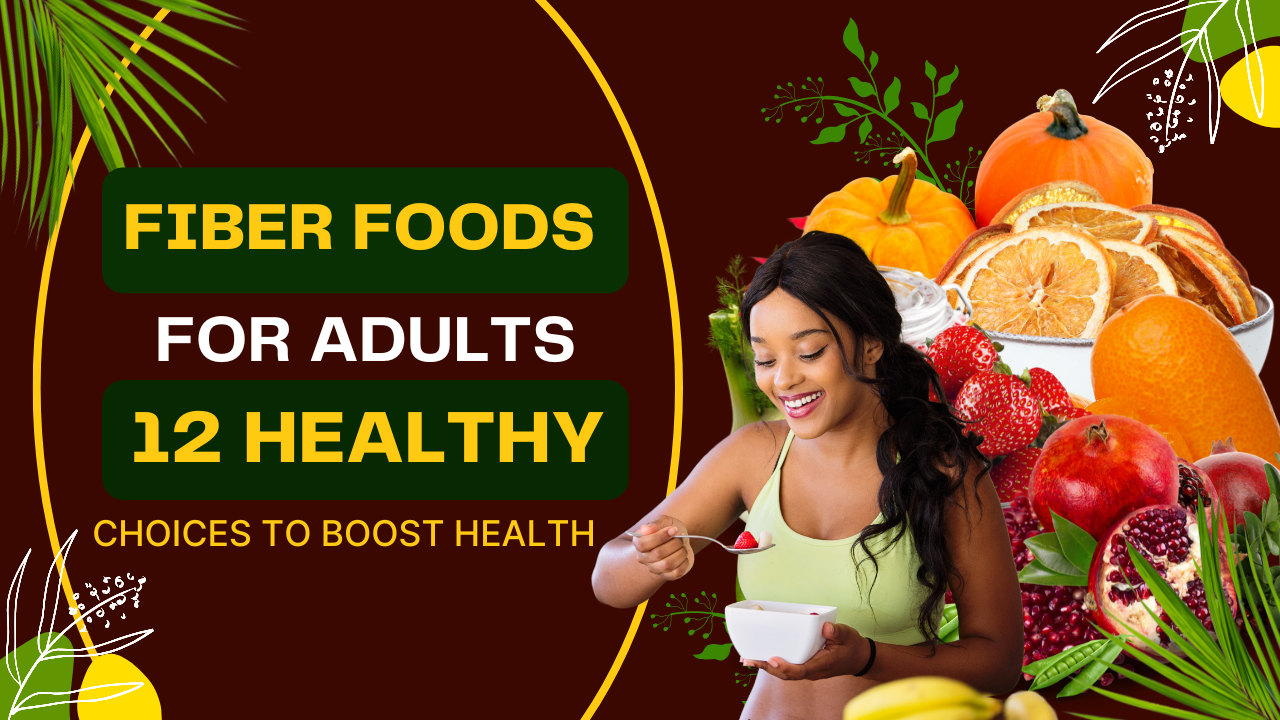Fiber is one of the most essential nutrients for adults, yet many people do not consume enough daily. Incorporating fiber foods for adults into your diet can significantly enhance digestive health, maintain weight, and even prevent chronic diseases like diabetes and heart conditions. Eating fiber-rich foods can also support gut health, improve bowel movements, and contribute to overall wellness. The good news is that fiber is abundant in natural foods, from fruits and vegetables to whole grains and legumes. Including these foods in your daily meals can transform your health, energy levels, and vitality.
One of the biggest challenges adults face is understanding which foods provide sufficient fiber. While supplements exist, obtaining fiber from whole foods offers additional nutrients, such as vitamins, minerals, and antioxidants. These compounds work synergistically to promote optimal health. For instance, consuming fiber through fruits like apples or vegetables like broccoli not only supports digestion but also helps strengthen the immune system. A balanced intake of fiber is essential for maintaining a healthy weight and reducing the risk of obesity-related conditions.
Furthermore, fiber foods for adults are not just about digestion—they impact mental health as well. Emerging research suggests that a fiber-rich diet can influence brain function, mood, and stress levels. By consuming adequate fiber daily, adults can enhance energy metabolism, regulate blood sugar levels, and feel more satisfied after meals. This holistic approach to nutrition makes fiber an indispensable part of a healthy adult lifestyle. In this article, we will explore the importance of fiber, its benefits, the best fiber-rich foods for adults, and practical ways to include them in your meals to achieve a healthier, more vibrant life.
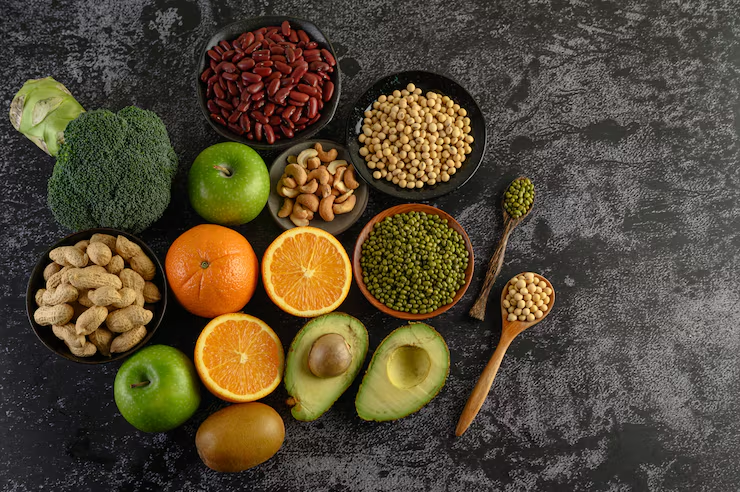
What Are Fiber Foods for Adults?
Fiber is a type of carbohydrate that the body cannot digest. Unlike other carbs, fiber passes through the digestive system largely intact, providing bulk and aiding in bowel regularity. Fiber foods for adults come in two primary types: soluble and insoluble. Soluble fiber dissolves in water, forming a gel-like substance that helps lower cholesterol and regulate blood sugar. Insoluble fiber, on the other hand, adds bulk to stool and promotes regular bowel movements. Both types are crucial for optimal health and are abundant in natural foods.
Common sources of fiber foods for adults include fruits, vegetables, whole grains, legumes, nuts, and seeds. Each of these foods contains unique compounds that contribute to digestive health, satiety, and nutrient absorption. For instance, oats and barley are rich in soluble fiber, which is beneficial for heart health, while vegetables like carrots and spinach contain insoluble fiber, which improves digestion. Incorporating a variety of these foods ensures that adults get a balanced intake of both fiber types.
Eating a diet rich in fiber also has long-term health benefits. Adults who regularly consume fiber foods for adults are at lower risk of developing chronic diseases such as type 2 diabetes, cardiovascular issues, and certain cancers. Fiber helps maintain a healthy gut microbiome, which supports immunity and overall well-being. By making fiber a priority in daily meals, adults can not only improve digestive health but also support weight management, regulate cholesterol, and maintain steady blood sugar levels.
Why Fiber Foods for Adults Are Essential
Fiber is more than just a digestive aid—it is a critical nutrient for long-term health. One of the most important reasons adults should prioritize fiber foods for adults is their role in digestive health. Adequate fiber intake helps prevent constipation, bloating, and other digestive disorders. It also supports the growth of beneficial gut bacteria, which play a key role in immune function and nutrient absorption. Adults who include fiber-rich foods in their daily diet often report improved bowel regularity and reduced digestive discomfort.
Another reason fiber is essential is its impact on weight management. Fiber-rich foods are generally low in calories but high in volume, making adults feel full and satisfied after meals. This reduces the tendency to overeat and helps maintain a healthy weight. For instance, consuming a bowl of lentils or a serving of berries can curb hunger for hours while providing essential nutrients. Therefore, incorporating fiber foods for adults is a natural and effective strategy for weight control.
Additionally, fiber plays a pivotal role in reducing the risk of chronic diseases. Soluble fiber can lower LDL cholesterol levels, supporting heart health, while insoluble fiber helps regulate blood sugar levels and reduce the risk of type 2 diabetes. Regular intake of fiber foods for adults also promotes detoxification, as fiber binds to toxins and helps eliminate them from the body. In summary, fiber is indispensable for adults because it improves digestion, supports weight management, and reduces the risk of chronic illnesses.
Top Fiber Foods for Adults
Lentils 🌱

Lentils are among the most nutrient-dense fiber foods for adults, offering both soluble and insoluble fiber. Soluble fiber helps regulate blood sugar and lowers cholesterol, while insoluble fiber promotes smooth digestion. Including lentils in your meals can significantly improve bowel regularity and prevent constipation, making them an excellent choice for adults looking to support their digestive system naturally. Regular consumption of lentils also aids in weight management because they provide a sense of fullness without adding excess calories.
Beyond fiber, lentils are packed with essential nutrients such as plant-based protein, folate, iron, and magnesium. For adults who follow a vegetarian or vegan diet, lentils are a convenient way to meet daily protein requirements while boosting fiber intake. Adding lentils to soups, stews, salads, or even curries ensures that you are maximizing the health benefits of these powerhouse legumes. By including lentils in your weekly meal plan, you are incorporating a rich source of fiber, which is critical for long-term health.
Moreover, lentils play a vital role in heart health. The soluble fiber in lentils helps reduce LDL cholesterol levels, which decreases the risk of heart disease. Additionally, lentils stabilize blood sugar levels, making them beneficial for adults at risk of type 2 diabetes. Including lentils as part of fiber foods for adults promotes sustained energy levels throughout the day and supports overall well-being. Whether in a hearty soup or a refreshing salad, lentils are an easy, versatile, and delicious way to improve your fiber intake.
Oats 🥣
Oats are a classic breakfast favorite and one of the best fiber foods for adults. They are rich in soluble fiber, particularly beta-glucan, which has been shown to lower cholesterol and regulate blood sugar levels. Consuming oats daily can enhance satiety, preventing overeating and supporting weight management. Adults who include oats as a staple in their diet often experience better digestive health and reduced bloating, making oats a simple yet powerful addition to a fiber-rich diet.
In addition to fiber, oats are abundant in vitamins, minerals, and antioxidants. They provide magnesium, iron, and B vitamins, all of which support energy metabolism and overall vitality. The soluble fiber in oats feeds beneficial gut bacteria, promoting a healthy microbiome, which is essential for digestion and immunity. By making oats a part of your breakfast routine, whether as oatmeal, overnight oats, or oat smoothies, you ensure that you are regularly consuming one of the most effective fiber foods for adults.
Oats are also highly versatile and easy to incorporate into daily meals. You can use oats in savory dishes, baking, or smoothies, making them a flexible option for adults with busy lifestyles. The fiber in oats slows digestion, providing sustained energy throughout the day. By consistently eating oats as part of fiber foods for adults, you support digestive health, heart health, and overall wellness in a natural and enjoyable way.
Apples 🍎
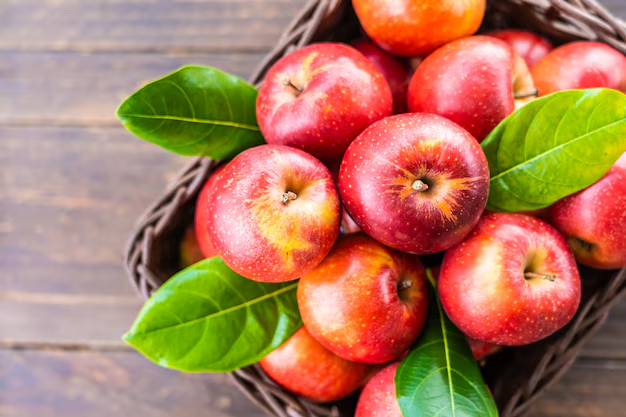
Apples are one of the most convenient and delicious fiber foods for adults. They are packed with both soluble and insoluble fiber, which supports digestion, reduces constipation, and promotes gut health. Eating apples regularly can help adults maintain regular bowel movements and manage blood sugar levels. The skin of apples is particularly rich in fiber, so it’s beneficial to consume them unpeeled whenever possible.
Besides fiber, apples contain powerful antioxidants like quercetin and vitamin C, which support immunity and reduce inflammation. The combination of fiber and natural sugars in apples helps regulate energy release, preventing blood sugar spikes and crashes. For adults aiming to increase their intake of fiber foods for adults, apples make a perfect on-the-go snack that requires no preparation yet provides significant health benefits.
Apples are also versatile and can be incorporated into meals creatively. Add them to salads, oatmeal, or yogurt for a fiber boost, or enjoy them fresh as a snack. Regular consumption of apples as part of fiber foods for adults not only promotes digestive health but also supports weight management and heart health. Their natural sweetness makes them a satisfying choice for adults who want to enjoy fiber-rich foods without compromising taste.
Broccoli 🥦
Broccoli is a cruciferous vegetable that stands out as one of the top fiber foods for adults. It contains insoluble fiber, which adds bulk to stool and improves bowel regularity, and soluble fiber, which helps regulate cholesterol and blood sugar levels. Eating broccoli regularly supports digestive health, promotes satiety, and reduces the risk of constipation, making it an ideal addition to an adult diet.
Beyond fiber, broccoli is rich in vitamins and minerals like vitamin C, vitamin K, calcium, and folate. Its antioxidants, including sulforaphane, help reduce inflammation and support the immune system. Adults who include broccoli in their meals not only increase fiber intake but also gain essential nutrients that improve overall health. Incorporating broccoli into fiber foods for adults provides a natural way to strengthen immunity and maintain energy levels.
Broccoli is highly versatile and easy to cook. It can be steamed, roasted, added to stir-fries, or included in soups. Pairing broccoli with other fiber-rich foods, such as beans or whole grains, enhances its benefits and ensures a balanced intake of both soluble and insoluble fiber. By regularly including broccoli in fiber foods for adults, adults can enjoy improved digestion, better heart health, and enhanced overall well-being.
Chia Seeds 🌾
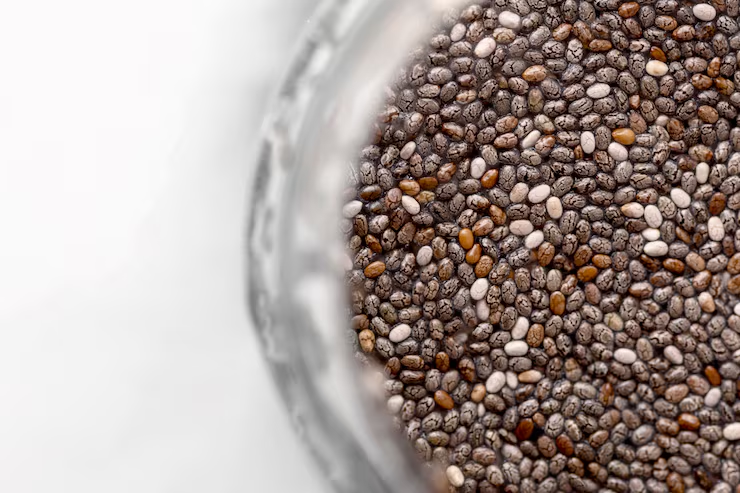
Chia seeds are tiny but incredibly potent fiber foods for adults. They are packed with soluble fiber, which absorbs water and expands in the stomach, promoting a feeling of fullness and aiding digestion. Consuming chia seeds regularly helps adults maintain bowel regularity, reduce constipation, and support weight management. Their fiber content also helps stabilize blood sugar levels, making chia seeds ideal for adults at risk of type 2 diabetes.
Chia seeds are also rich in omega-3 fatty acids, protein, and antioxidants. These nutrients support heart and brain health, making chia seeds a nutrient-dense addition to any adult diet. Including chia seeds as part of fiber foods for adults ensures that you are consuming a versatile ingredient that contributes to both digestive health and overall wellness.
Chia seeds can easily be added to a variety of meals. Mix them into smoothies, yogurt, oatmeal, or even baked goods to boost fiber intake effortlessly. Their ability to absorb liquid and form a gel-like consistency enhances satiety, making them an excellent choice for weight management. Regularly including chia seeds in fiber foods for adults supports digestion, promotes fullness, and improves overall nutritional intake.
Almonds 🌰
Almonds are a powerful source of fiber and nutrients, making them essential fiber foods for adults. Their insoluble fiber supports digestion, promotes regular bowel movements, and reduces constipation. Adults who include almonds in their diet benefit from improved gut health and increased satiety, which helps control appetite and maintain a healthy weight.
Beyond fiber, almonds are rich in healthy fats, protein, vitamin E, and magnesium. These nutrients support heart health, energy metabolism, and brain function. Including almonds in fiber foods for adults allows adults to enjoy a convenient, nutrient-packed snack that promotes overall well-being while boosting daily fiber intake.
Almonds are highly versatile and can be eaten raw, roasted, added to cereals, salads, or baked goods. Combining almonds with other fiber foods for adults enhances nutritional benefits and provides a sustained energy source throughout the day. Their crunchy texture and rich taste make almonds a satisfying and practical addition to any adult’s fiber-rich diet.
Black Beans 🫘
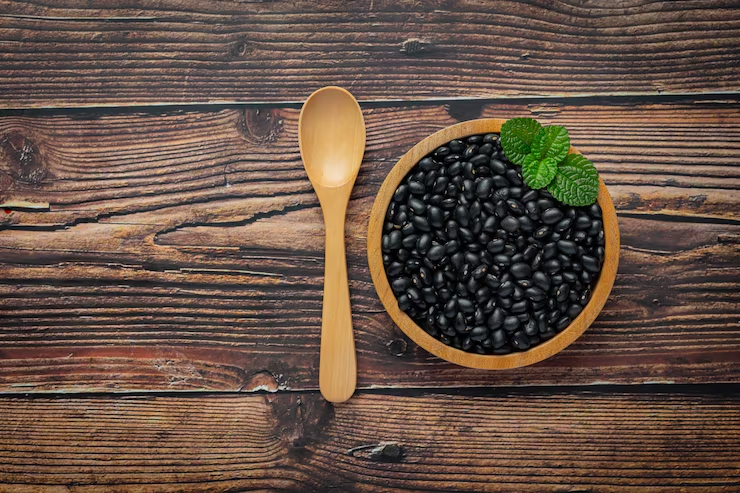
Black beans are one of the most fiber-rich legumes, making them excellent fiber foods for adults. They contain both soluble and insoluble fiber, supporting digestive health, bowel regularity, and blood sugar control. Regular consumption of black beans can help adults feel full, reduce overeating, and support weight management naturally.
Black beans are also packed with plant-based protein, iron, magnesium, and antioxidants. These nutrients improve heart health, energy metabolism, and overall wellness. Including black beans in fiber foods for adults ensures a balanced intake of essential nutrients alongside fiber, making them ideal for both vegetarians and non-vegetarians alike.
Incorporating black beans into daily meals is easy and versatile. They can be added to soups, stews, salads, or rice dishes, providing a fiber boost in every meal. By consuming black beans regularly as part of fiber foods for adults, adults can enhance digestive function, improve satiety, and maintain steady energy levels throughout the day.
Carrots 🥕
Carrots are one of the most accessible and nutritious fiber foods for adults. They are rich in insoluble fiber, which adds bulk to stool and promotes regular bowel movements. Adults who consume carrots regularly benefit from improved digestion, reduced constipation, and enhanced gut health. Their fiber content also supports satiety and weight management.
Carrots are abundant in antioxidants like beta-carotene, which supports eye health, immunity, and overall wellness. Including carrots in fiber foods for adults not only increases fiber intake but also provides essential nutrients that improve long-term health. Whether raw, roasted, or in soups, carrots are a versatile and delicious way to boost fiber intake.
Carrots can be easily incorporated into daily meals, making them a practical addition to a fiber-rich diet. Pairing carrots with other fiber foods for adults like beans, oats, or leafy greens maximizes health benefits. Regular consumption of carrots ensures adults enjoy better digestion, sustained energy, and overall improved nutritional status.
Conclusion
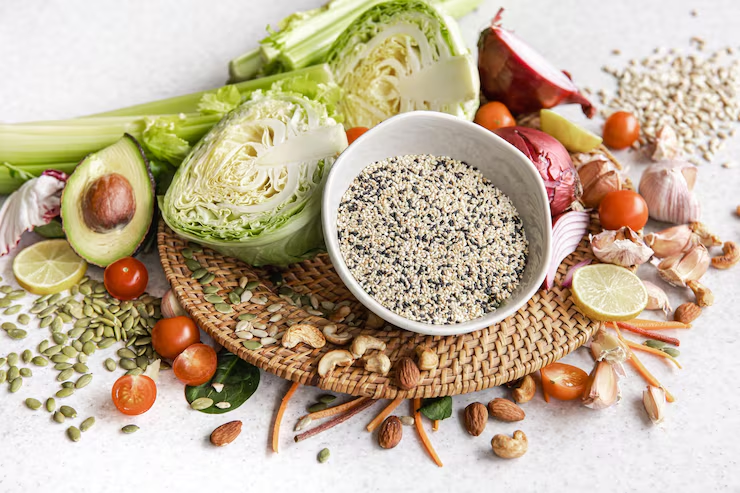
Incorporating fiber foods for adults into daily meals is one of the simplest and most effective ways to improve overall health. From supporting digestive health to reducing the risk of chronic diseases, fiber plays a pivotal role in an adult’s well-being. By consuming a variety of fiber-rich foods like lentils, oats, apples, broccoli, chia seeds, almonds, black beans, and carrots, adults can achieve a balanced diet that nourishes the body while promoting long-term vitality.
Regular consumption of fiber foods for adults not only improves digestion but also supports weight management. Foods high in fiber provide a feeling of fullness, preventing overeating and helping adults maintain a healthy weight. Fiber also contributes to stable blood sugar levels and improved heart health, making it indispensable for adults looking to lead an active and balanced lifestyle. Integrating these foods into daily meals is both simple and delicious, offering versatility in preparation and flavor.
Ultimately, making fiber a priority in daily nutrition is an investment in long-term health. Adults who embrace fiber foods for adults enjoy benefits that extend beyond digestion, including enhanced energy, improved mood, and a reduced risk of chronic diseases. By following a fiber-rich diet, adults can experience a healthier gut, stronger immunity, and overall enhanced quality of life. Start small, choose fiber-rich meals, and gradually increase intake to enjoy the full spectrum of benefits that fiber has to offer. 🌟
FAQs
Q1. What are the best sources of fiber foods for adults?
The best sources of fiber foods for adults include lentils, oats, apples, broccoli, chia seeds, almonds, black beans, and carrots. These foods provide both soluble and insoluble fiber, promoting digestive health, satiety, heart health, and stable blood sugar levels when included regularly in daily meals.
Q2. How much fiber should adults consume daily?
Adults should aim for at least 25–30 grams of fiber per day. Consuming fiber foods for adults like vegetables, fruits, whole grains, and legumes ensures adequate intake. Meeting this daily requirement supports bowel regularity, digestion, weight management, and reduces the risk of chronic illnesses such as diabetes and heart disease.
Q3. Can fiber foods for adults help with weight loss?
Yes, fiber foods for adults can aid weight loss. Fiber increases fullness and reduces hunger, preventing overeating. Foods like oats, lentils, and vegetables are low in calories but high in fiber, making them ideal for adults aiming to control their weight while maintaining balanced nutrition and energy levels.
Q4. Are there any side effects of too much fiber?
While fiber is essential, excessive intake may cause bloating, gas, or abdominal discomfort. Adults should increase fiber gradually and drink plenty of water when consuming fiber foods for adults. A balanced approach ensures digestive benefits without discomfort, supporting gut health, nutrient absorption, and overall wellness effectively.
Q5. How can adults include fiber foods in daily meals?
Adults can include fiber foods for adults by adding fruits to breakfast, vegetables to lunch and dinner, legumes to soups or salads, and nuts or seeds as snacks. Oats, whole grains, and fiber-rich snacks also provide consistent daily intake, promoting digestion, satiety, and long-term health benefits in a practical, easy-to-follow manner.

